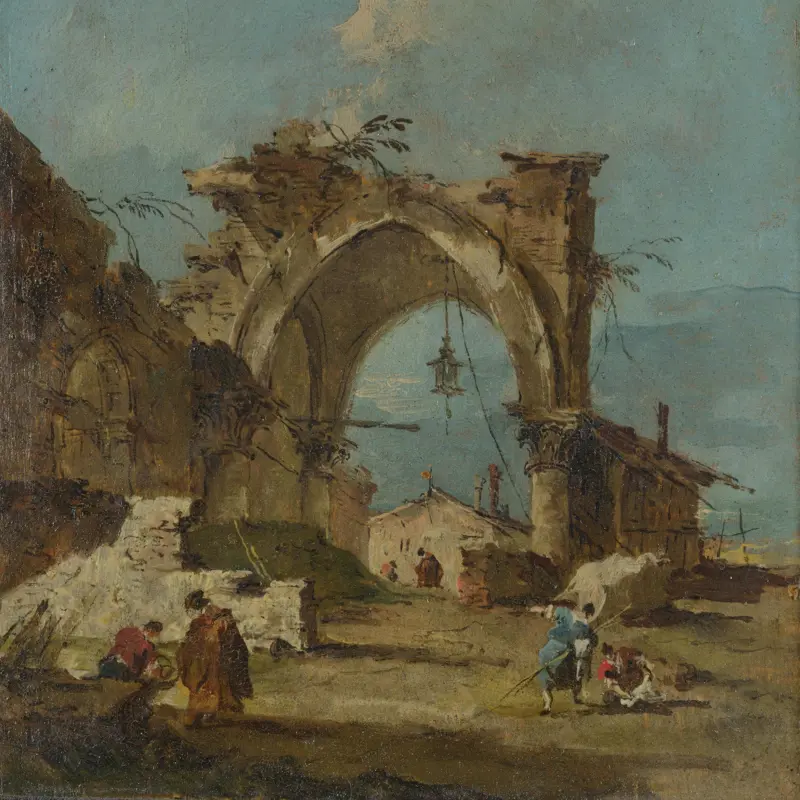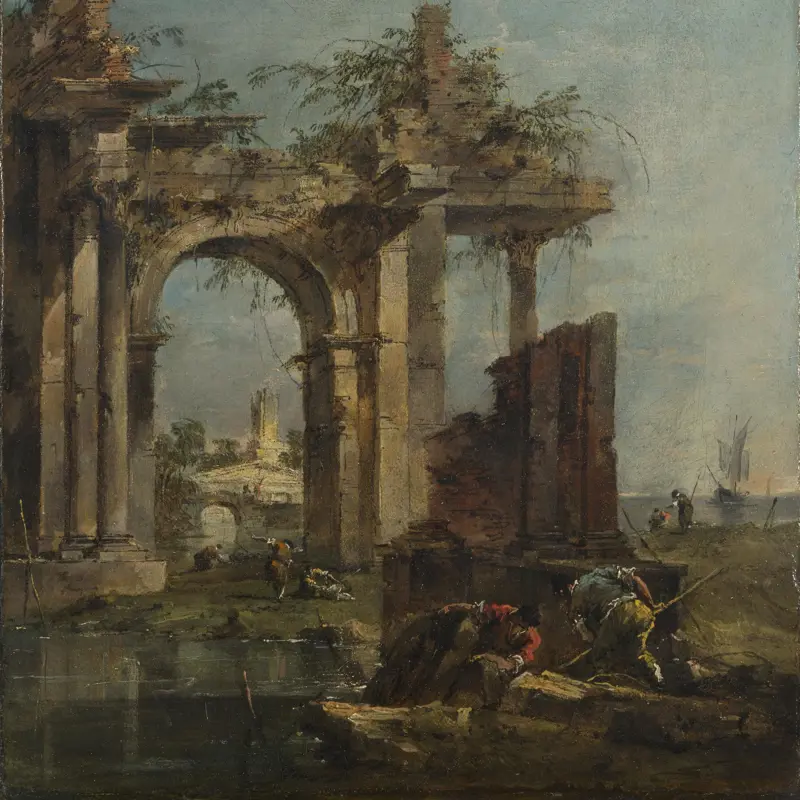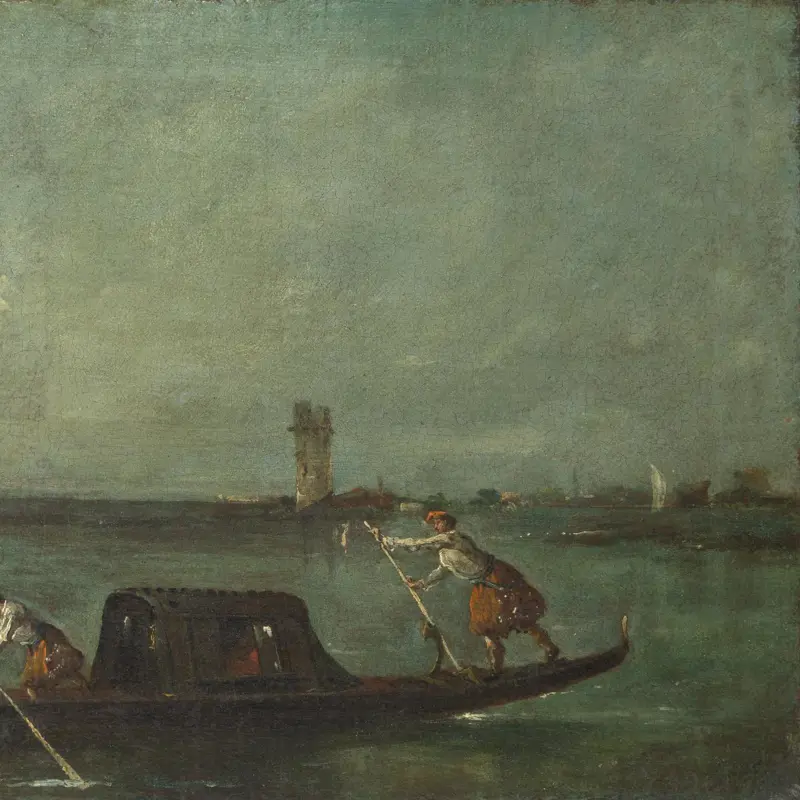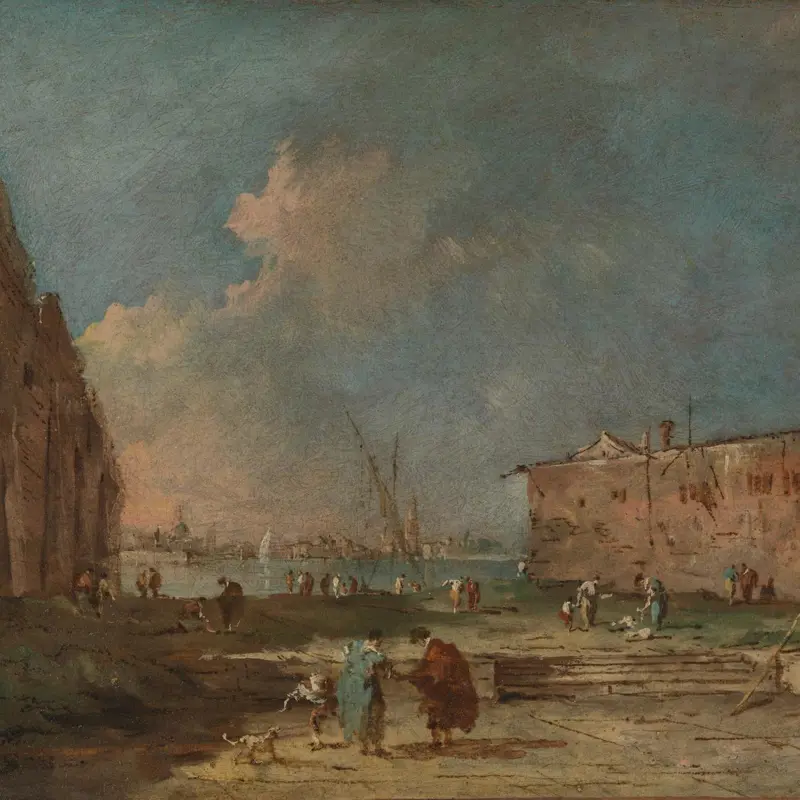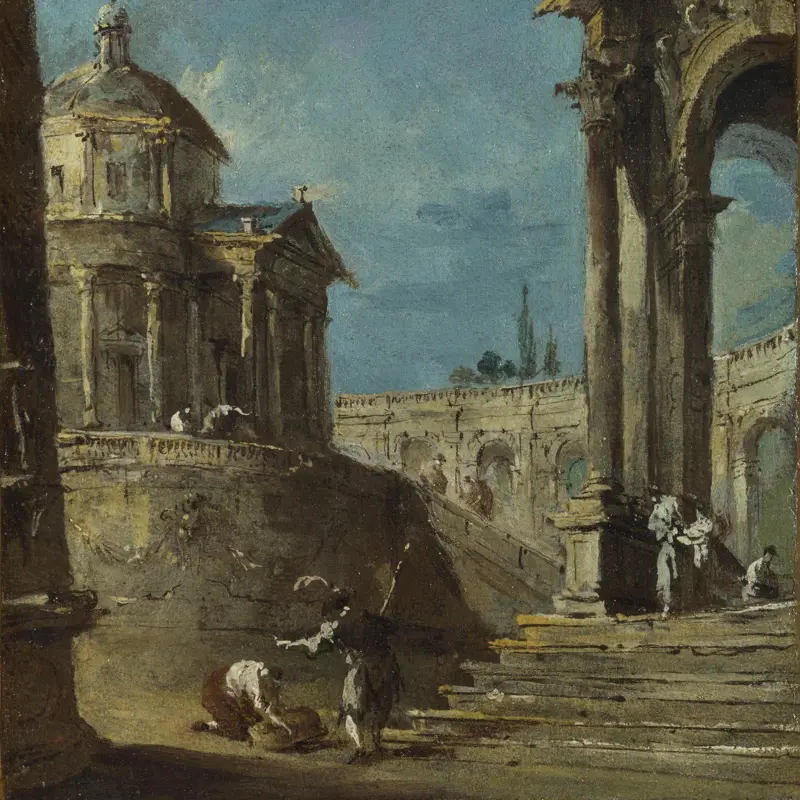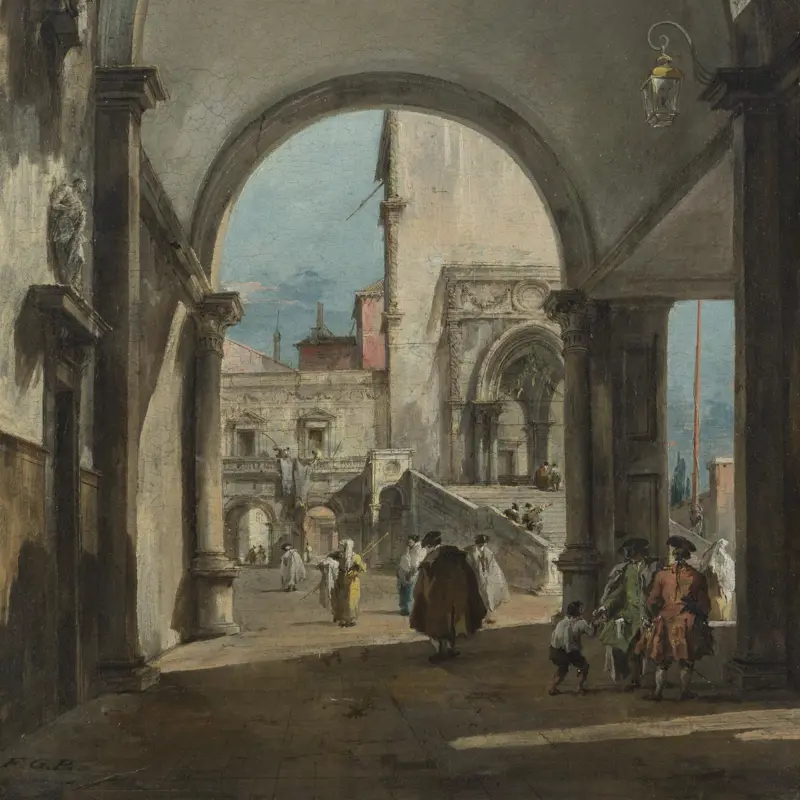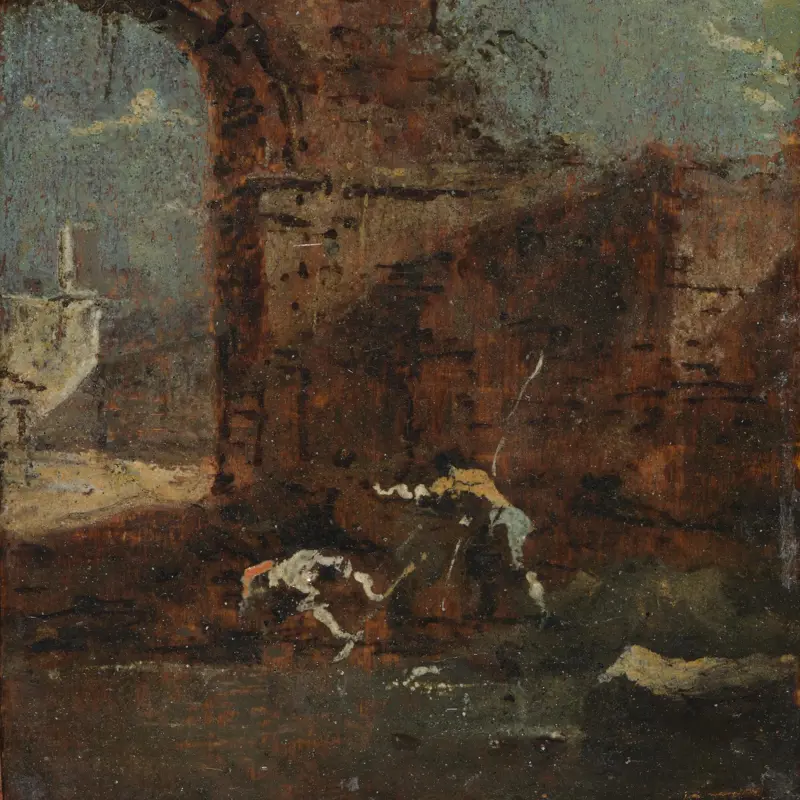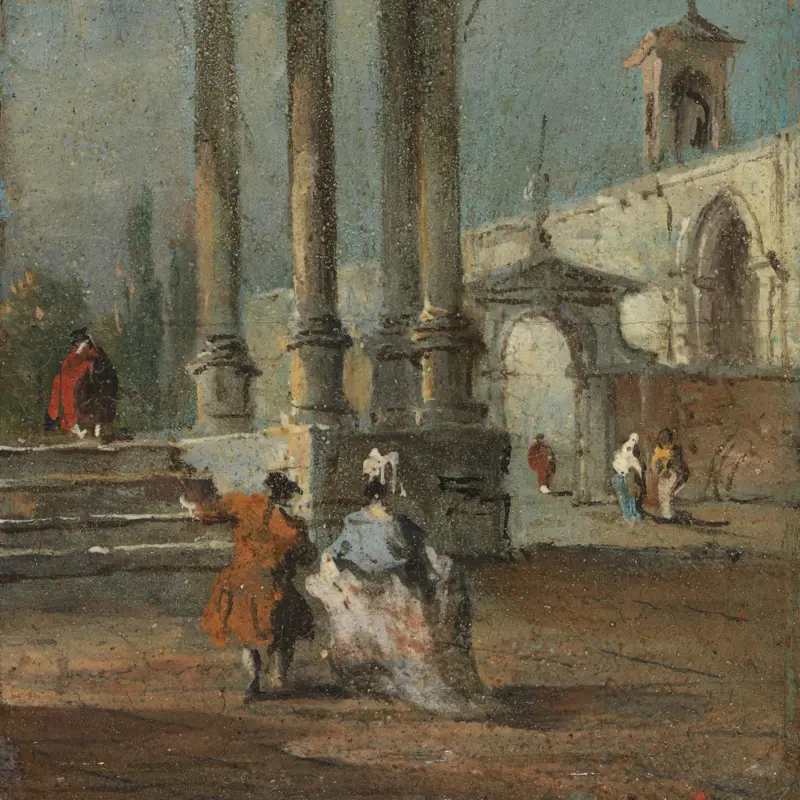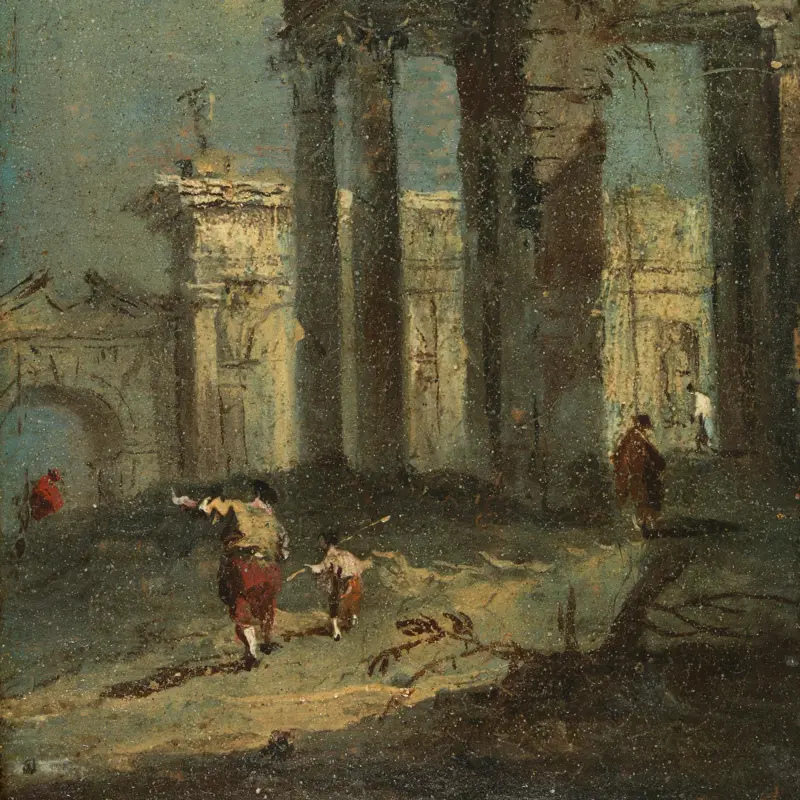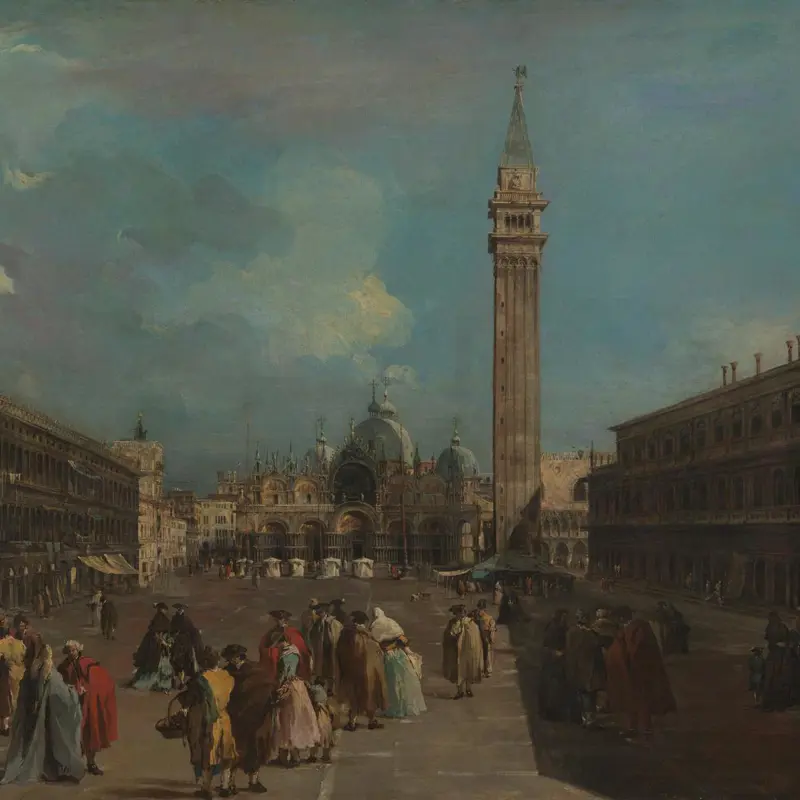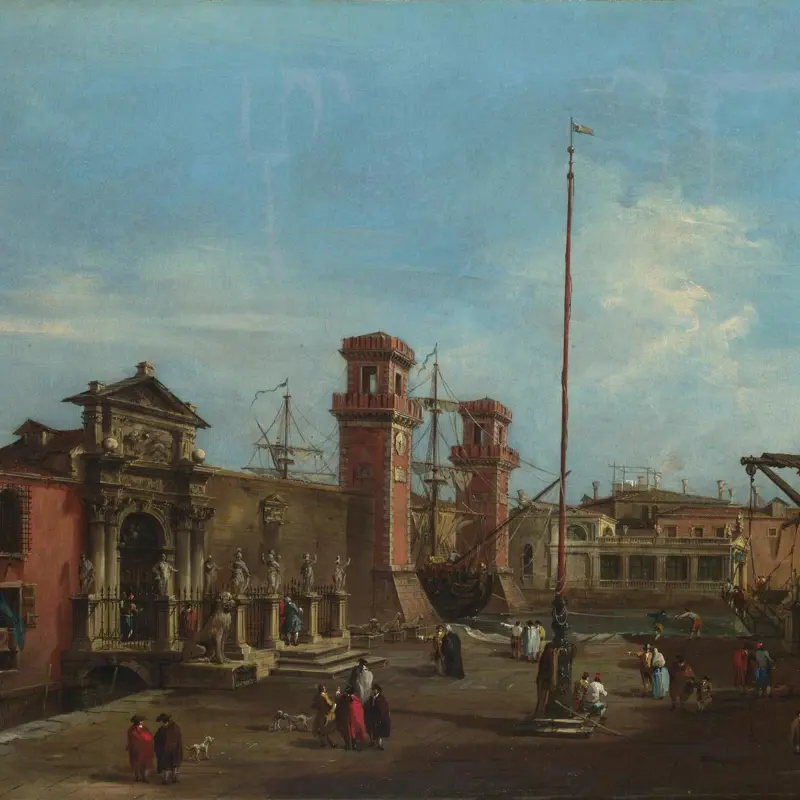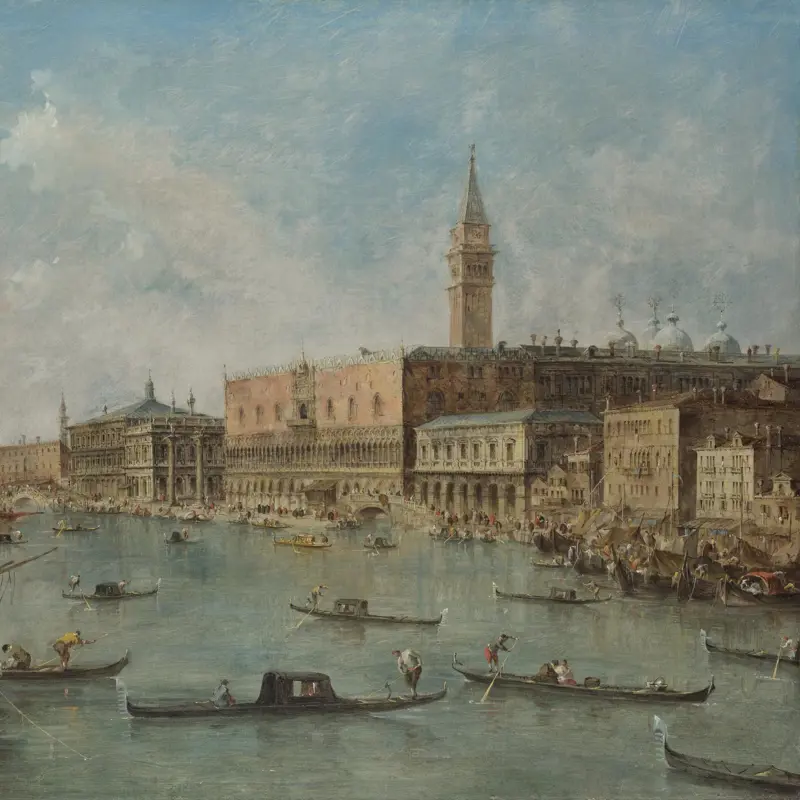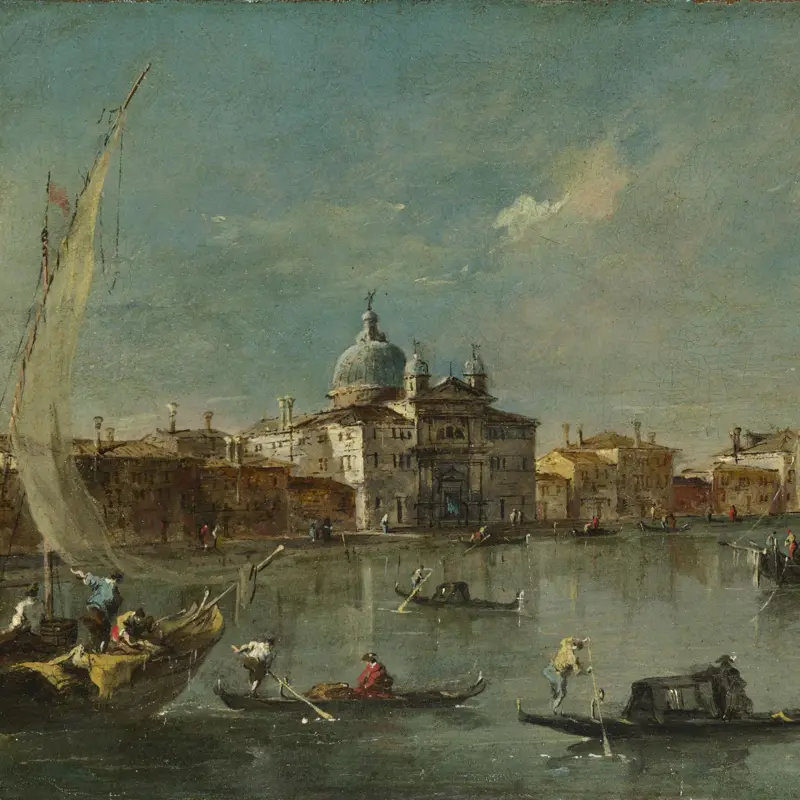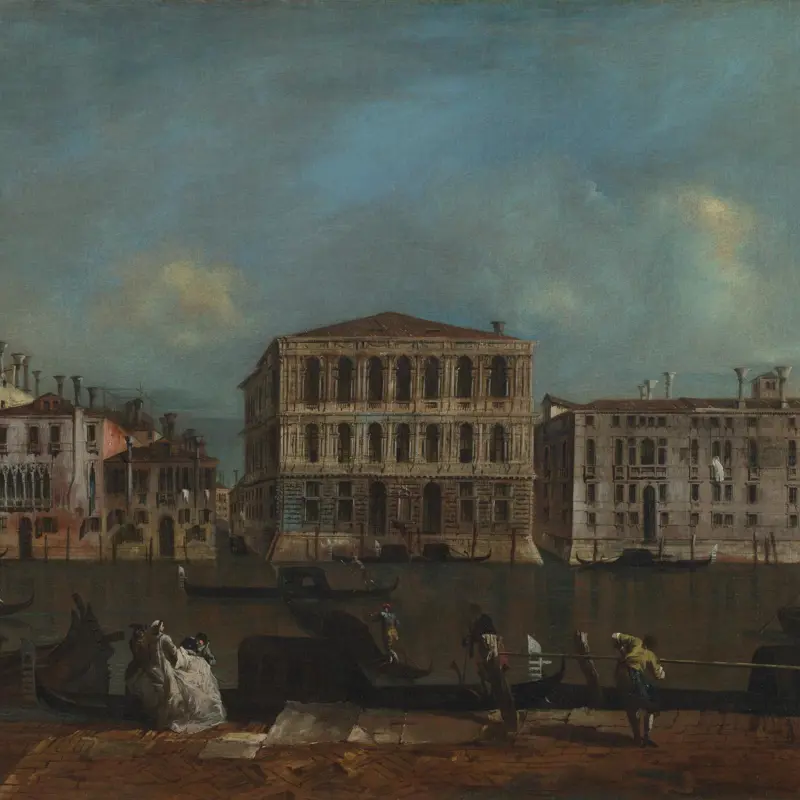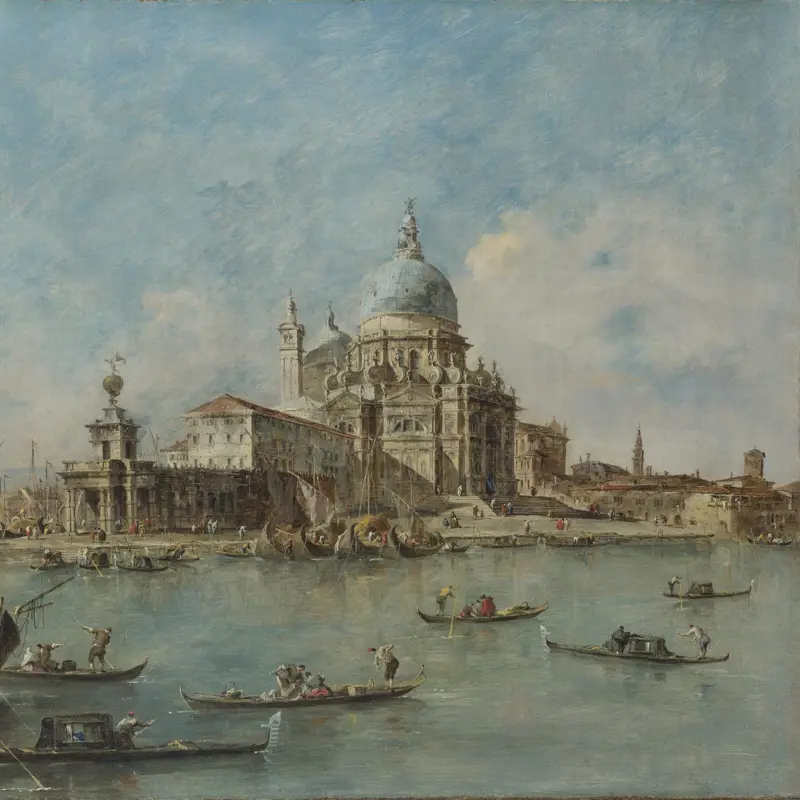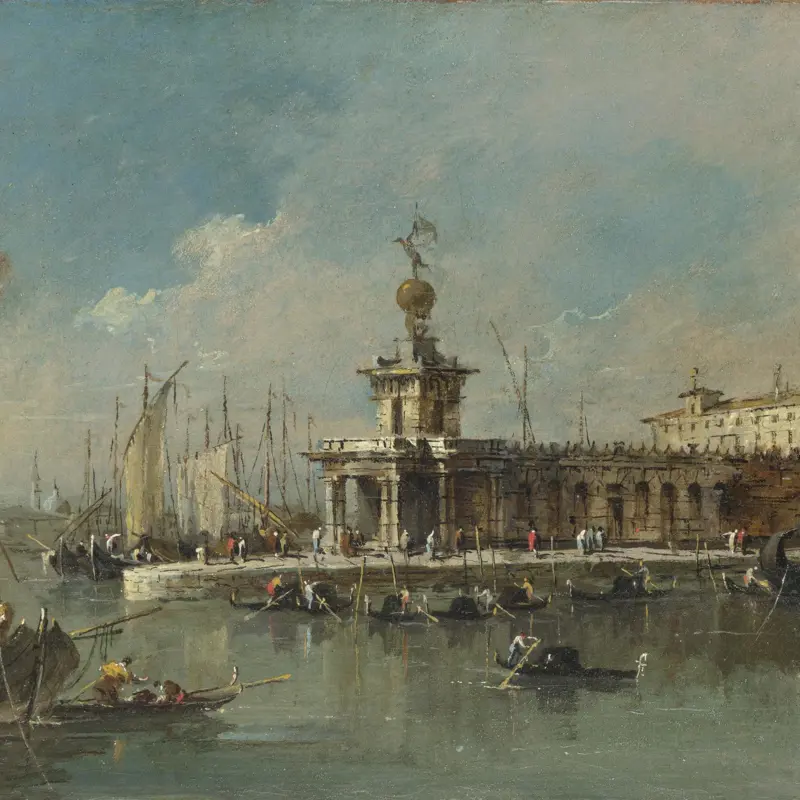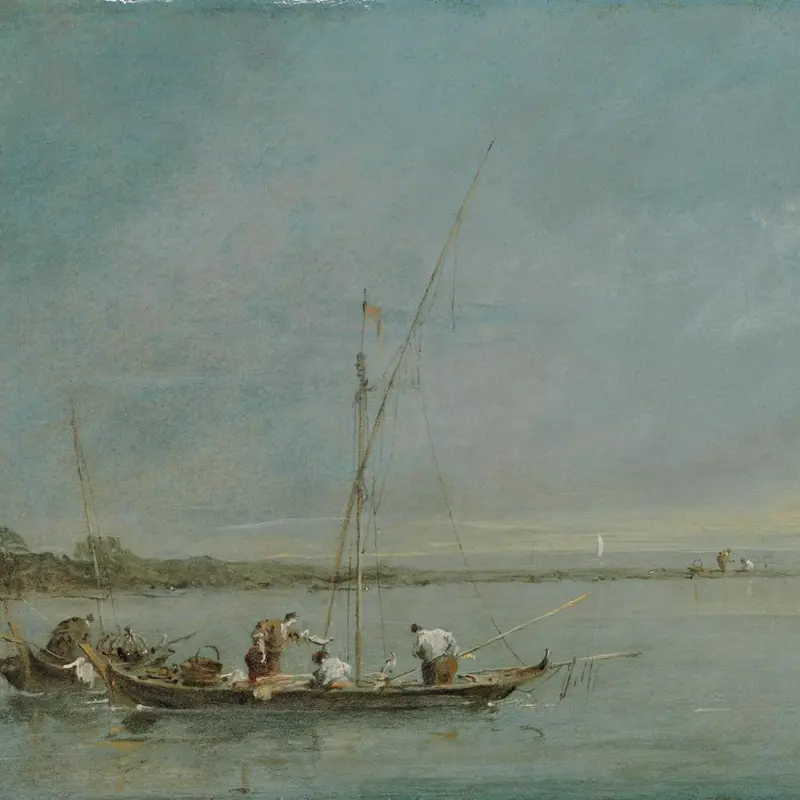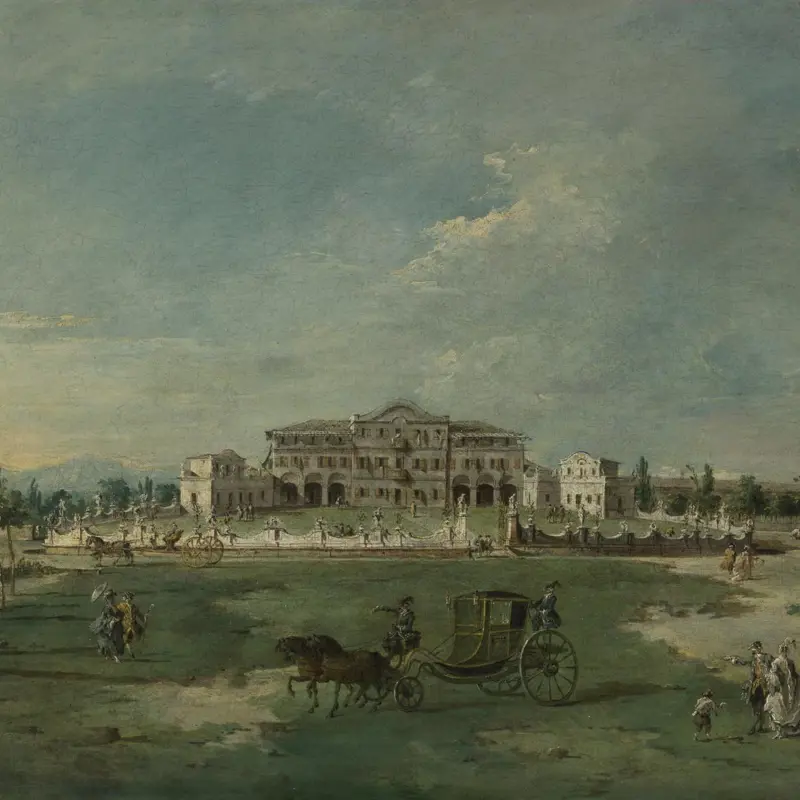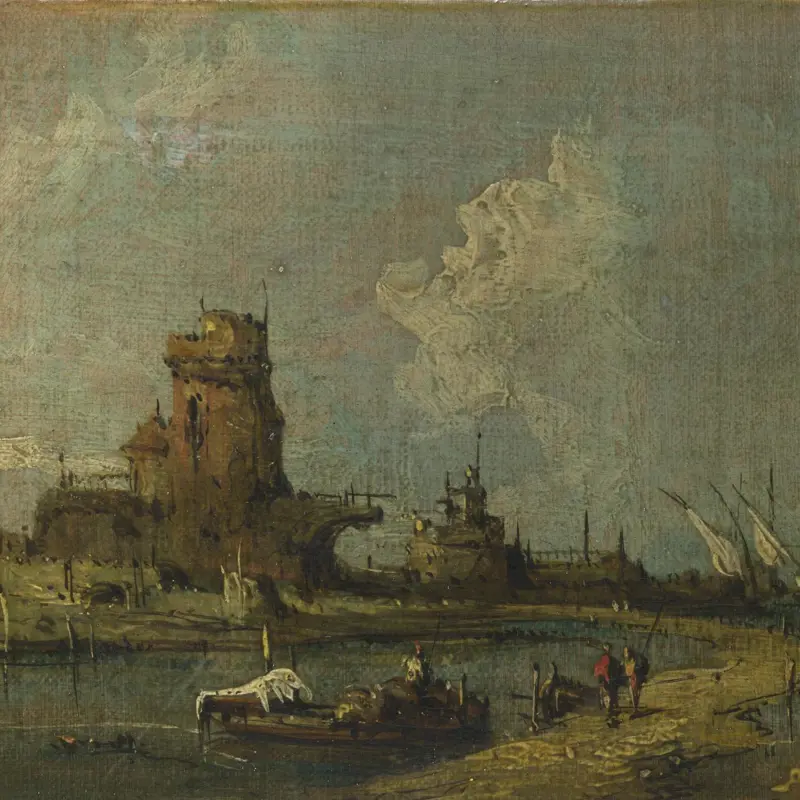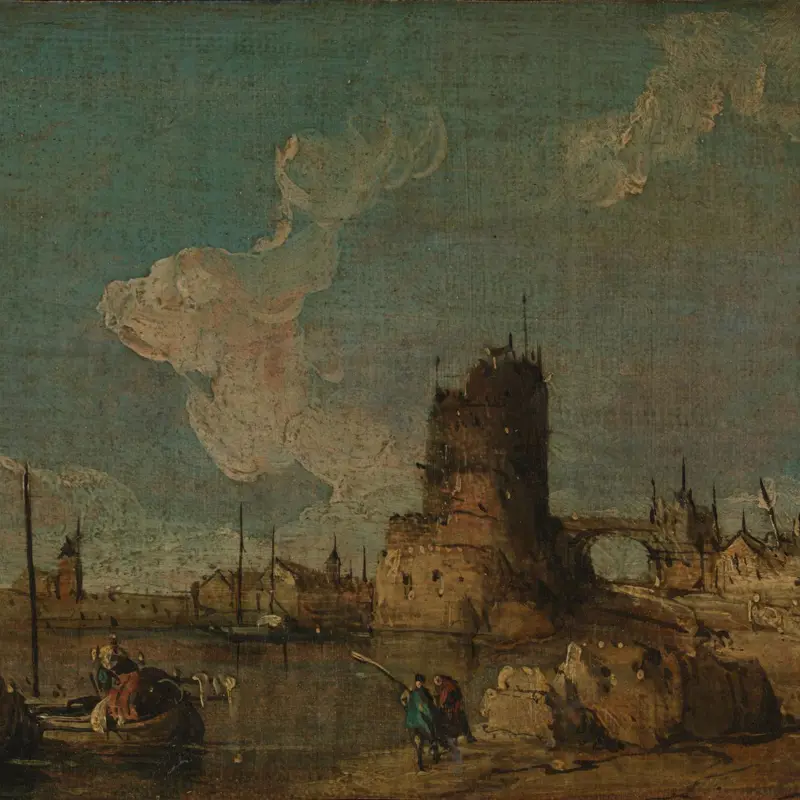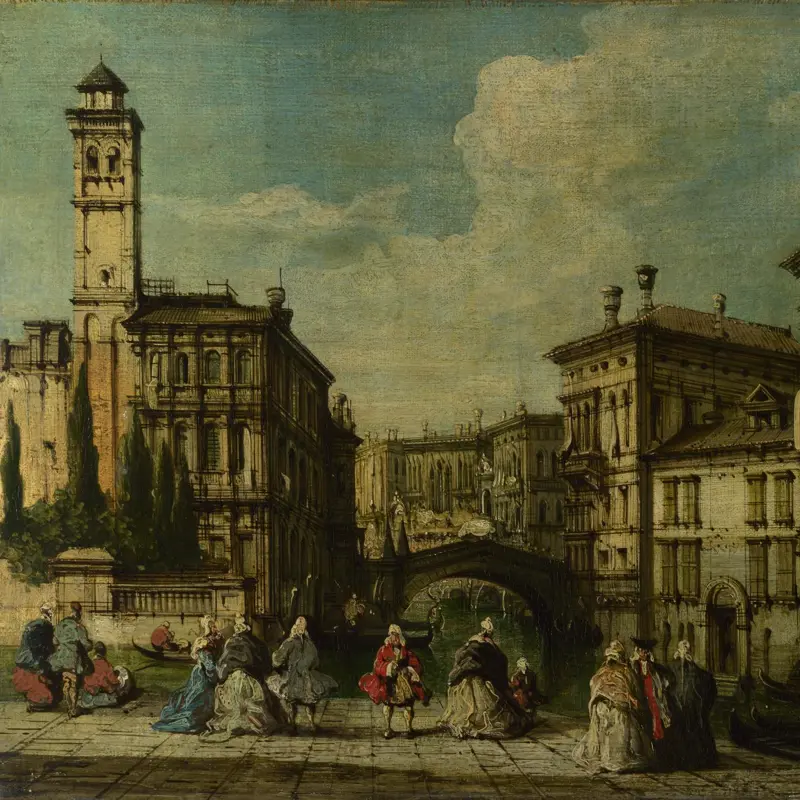Francesco Guardi, 'An Architectural Caprice', probably 1770s
About the work
Overview
Although capricci views like this one show scenes that are essentially imaginary, Guardi often used details of real buildings in his. The staircase here is based on the one in the courtyard of the Doge’s Palace in Venice, though Guardi has removed some of its statues. He also reduced the size of the square, creating a more intimate space.
A sunlit courtyard lies beyond the dark shadows of the arcade, and the illuminated figures crossing it catch our attention. More figures, suggested by dabs of paint, lead us up the stairs; high above, two people drape a blue cloth over the pale stone. Guardi has shown only part of the right-hand arch, placed at an unusual angle to the dark row of arches on the right and those across the square, so that we feel that the scene continues beyond the picture.
Key facts
Details
- Full title
- An Architectural Caprice
- Artist
- Francesco Guardi
- Artist dates
- 1712 - 1793
- Date made
- probably 1770s
- Medium and support
- oil on canvas
- Dimensions
- 22.1 × 17.2 cm
- Acquisition credit
- Salting Bequest, 1910
- Inventory number
- NG2519
- Location
- Room 33
- Collection
- Main Collection
- Previous owners
- Frame
- 19th-century French Frame
Provenance
Additional information
Text extracted from the ‘Provenance’ section of the catalogue entry in Michael Levey, ‘National Gallery Catalogues: The Seventeenth and Eighteenth Century Italian Schools’, London 1986; for further information, see the full catalogue entry.
Bibliography
-
1956Levey, Michael, National Gallery Catalogues: The Eighteenth Century Italian Schools, London 1956
-
1986Levey, Michael, National Gallery Catalogues: The Seventeenth and Eighteenth Century Italian Schools, London 1986
-
2001
C. Baker and T. Henry, The National Gallery: Complete Illustrated Catalogue, London 2001
About this record
If you know more about this work or have spotted an error, please contact us. Please note that exhibition histories are listed from 2009 onwards. Bibliographies may not be complete; more comprehensive information is available in the National Gallery Library.

